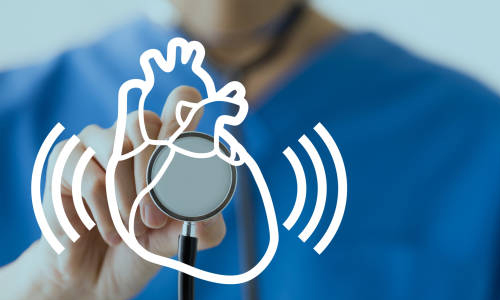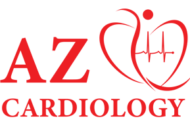ARRHYTHMIA
Taking the Right Steps for a Healthy Heart: Arrhythmia Treatment at AZ Cardiology
Get your heart back on beat
Arrhythmia is a condition where the heartbeat becomes irregular, too fast, or too slow. The heart is responsible for pumping blood throughout the body, and a normal heartbeat ensures that blood is distributed efficiently. When the heart’s rhythm is disrupted, it can affect the flow of blood to the body’s organs and tissues, leading to symptoms such as chest pain, shortness of breath, and fatigue.
At AZ Cardiology, we understand that managing arrhythmia can be a daunting and challenging experience. That’s why we offer comprehensive arrhythmia treatment options that are tailored to your unique needs and goals. We work closely with you to develop a personalized treatment plan that addresses your symptoms and helps you get back to living your life to the fullest.

What is Arrhythmia?
Arrhythmia is a medical condition that affects the rhythm of the heartbeat. It is characterized by an irregular heartbeat or heart rate that can be too fast, too slow, or irregular. Arrhythmia can occur in the upper chambers of the heart (atria) or the lower chambers (ventricles), and it can range from mild to life-threatening.
What are the causes of arrhythmia?
- Arrhythmia can be caused by a variety of factors. The most common causes include:
Heart disease, such as coronary artery disease, heart failure, or a history of heart attacks - High blood pressure
- Electrolyte imbalances, such as low levels of potassium or magnesium
- Stress and anxiety
- Certain medications, such as some asthma and cold medications, or those that affect heart rhythm
- Alcohol or drug abuse
- Thyroid problems
- Sleep apnea
- Congenital heart defects or genetic conditions that affect the heart’s electrical system
What are the symptoms if you have arrhythmia?
he symptoms of arrhythmia can vary depending on the type and severity of the condition. Some people with arrhythmia may not experience any noticeable symptoms, while others may experience one or more of the following:
- Palpitations (sensations of a racing, fluttering, or pounding heartbeat)
- Chest discomfort or pain
- Shortness of breath
- Dizziness or lightheadedness
- Fainting or near-fainting
- Fatigue or weakness
- Sweating
- Anxiety or panic
- Blurred vision
The symptoms may come and go, and may be triggered by certain activities or situations, such as exercise, stress, or caffeine. In some cases, arrhythmia can cause more serious symptoms or complications, such as stroke or heart failure.
What can be done?
The treatment for arrhythmia will depend on the type and severity of the condition, as well as the underlying cause. Here are some common treatment options for arrhythmia:
- Medications: Various medications can be used to control the heart rate and rhythm, and prevent the recurrence of arrhythmia. These may include beta-blockers, calcium channel blockers, or anti-arrhythmic drugs.
- Cardioversion: This procedure uses electric shocks to restore a normal heart rhythm. It may be done as an emergency treatment, or as a scheduled procedure for certain types of arrhythmias.
- Catheter ablation: This minimally invasive procedure uses radiofrequency or cryotherapy to destroy the small areas of heart tissue that are causing the abnormal heart rhythm.
- Implantable devices: Pacemakers and implantable cardioverter defibrillators (ICDs) are devices that can be implanted under the skin to help regulate the heart rhythm and prevent sudden cardiac death.
- Lifestyle changes: Certain lifestyle changes may help reduce the risk of arrhythmia, such as quitting smoking, reducing alcohol and caffeine consumption, and managing stress.
It is important to work with a cardiologist to determine the most appropriate treatment approach for your individual needs and goals.
At AZ Cardiology, we offer comprehensive care for patients with arrhythmia. Our team can help you manage your condition and improve your quality of life through a personalized treatment plan.
We use advanced diagnostic tools and techniques to identify the underlying cause of your arrhythmia and determine the most appropriate treatment approach. Depending on your individual needs, this may include medications, lifestyle modifications, or procedures such as catheter ablation or implantable devices like pacemakers or defibrillators.
Our goal is to work closely with you to develop a treatment plan that addresses your unique needs and goals. We strive to provide compassionate, patient-centered care and support to help you achieve the best possible outcomes.
If you are struggling with arrhythmia, contact us today to schedule a consultation and learn more about how we can help you manage your condition.

